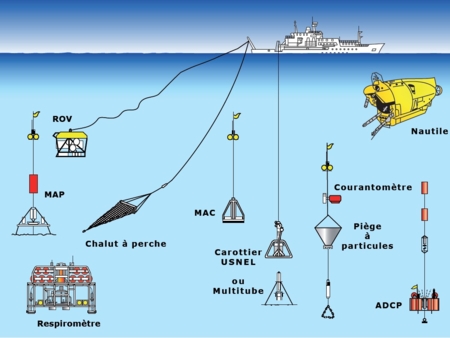Thesis defense of Pierre METHOU
Lifecycles of two hydrothermal vent shrimps from the Mid-Atlantic Ridge: Rimicaris exoculata and Rimicaris chacei
Please come to Pierre Methou's defense, it will take place in Pole Numérique Brest-Iroise, Tuesday 10th of December, Amphi A at 14:00 pm
ABSTRACT
Deep hydrothermal vent ecosystems are dense oases of life, which are mainly sustained by chemosynthetic primary production carried out by microorganisms, some of which are involved in symbioses with key dominant vent taxa. In this ephemeral and patchy habitat, endemic vent species face a double challenge: a dispersal phase through environments radically different from their vent biotope, and the transmission of symbionts that are essential to colonize vent systems. Rimicaris shrimps dominate communities of deep vent fields of the Mid Atlantic Ridge. Here, the study of two species, R. exoculata and R. chacei, living in sympatry, allows us to address issues related to their life cycle and the development of their symbiotic relationships, to understand what may explain the apparent difference in their colonization success. In embryonic life stages, the study of bacterial proliferation in R. exoculata suggests a possible early transmission of certain symbiotic lines. After reassessing juvenile stages taxonomy of both species of Rimicaris, different aspects of their demographic structure, reproduction and trophic transition during juvenile development towards a nutrition involving bacterial chemosynthesis were analyzed through a variety of approaches. The results highlight differences in both larval life and post-recruitment processes. The advances achieved here also open new research avenues to bridge remaining gaps still preventing a comprehensive understanding of their life cycle, while emphasizing the importance of placing this knowledge in the perspective of the colonization history of deep-sea vents by extending our approach to related species origination from other parts of the world.







